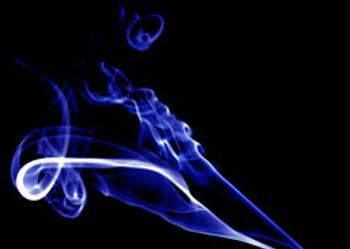
Maltreatment at an early age casts a very long shadow. Here: a look at the long-term effects of early childhood trauma.

Maltreatment at an early age casts a very long shadow. Here: a look at the long-term effects of early childhood trauma.

In a world in which substance use disorders are no longer suffered in isolation, treating addiction is a challenging journey with obstacles, intermittent failures, and life-altering successes. A poem on drug withdrawal expressed through the eyes of a fellow in addiction medicine.

The elephant in the room: the problem of iatrogenic opioid use disorder is being ignored.

A guide for helping patients understand heroin, its history, and how it impacts our communities.

Severe alcohol dependence and frequent relapses in this patient prompts his son to produce a durable power of attorney for health care. He demands that the physicians declare his father to lack decision-making capacity. More in this ethics case report.

Very few heavy drinkers receive treatment and fewer still are prescribed medications with demonstrated efficacy. Here, a summary of current research, key takeaways, and highlights from a study on topiramate treatment for heavy drinkers by the lead author of that study.

In addition to the approval of novel medications for alcohol use disorders, the past several years have been marked by an emphasis on development, standardization, and dissemination of new behavioral therapies, including computer-based interventions.

In the US, 38,000 drug overdose deaths occur per year, and it is estimated that 75% are opioid-related. The good news is that addiction is a treatable disease. More in this discussion of opioid addiction, the use of naloxone, and Good Samaritan laws.

Clinicians will be drawn in by author Charles R. Cross's personal experience documenting, Here We Are Now: The Lasting Impact of Kurt Cobain. Cobain, lead singer of Nirvana, committed suicide 20 years ago this month.

What expanded roles should psychiatrists be playing in the provision of proper pain management without taking their eyes off the issue of prescription opioid misuse and abuse? Insights here.

Alcohol misuse in older adults is often underdiagnosed in medical practice. This age group is rapidly moving into the treatment realm of the practicing general, geriatric, and addiction psychiatrist.

Many patients report that smoking helps them with their stress and psychological disturbances. However, smoking may actually worsen some of these symptoms. When is the right time for your patients to quit?

Why do so many die as a consequence of addiction? Sadly-and in some cases disastrously-affected individuals are never offered alternative approaches after one option fails. More in this commentary.

What medications are FDA approved for alcohol dependence? Take the quiz and learn more.

Many barriers can prevent physicians who have a substance use disorder from obtaining the help they need. However, in many states, all is not lost for physicians who willingly participate in treatment. Here, signs, symptoms, and intervention steps.

Pathological gambling is a common psychiatric condition that can present with a variety of symptoms. Treatment recommendations available for pathological gamblers, as well as resources for patients and their families in this Tipsheet.

How prevalent is dependence on amphetamines, cocaine, opioids, and other illicit drugs across the world? What is the associated disease burden? Insights here.

Insurers appear to have plenty of leeway to continue-or even expand-the kind of anti-psychiatrist policies at the core of 2 lawsuits filed last year. Details here.

The mental health community was given some much needed relief when the Obama Administration implemented the final rule be put in place from the 2008 Mental Health Parity and Addiction Equity Act. The new mandate will ensure that most health plans cover mental health and addiction services in the same way they treat other medical issues.

This article provides an overview of research concerning referral strategies for patients with substance use disorder and co-occurring disorders in the emergency department.

One might expect that treating nicotine use would be a leading priority for physicians. The reality is that this is not the case. More in this expert commentary, with practical tips for clinicians.

Stopping smoking affects the metabolism of a number of drugs used in the management of mental illness. Here, a summary of the author's published study on whether e-cigarettes with nicotine were more effective for smoking cessation than nicotine patches.

Smoking is the leading cause of preventable morbidity and mortality in the US. The majority of smokers want to quit, but only a fraction achieve this annually. New evidence shows it is possible to teach patients to weaken the link between craving and smoking until they are able to ride out any craving–and consequently quit.

What percentage of patients with schizophrenia have a comorbid cannabis use disorder? Take the quiz and learn more.

Psychiatrists are urged to familiarize themselves with these new drugs and the typical presentations of patients who use them since implications of misdiagnosis can be far-reaching.